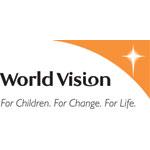
"But I didn't get dessert yet."
I cannot tell you how much it irks me when my daughter makes this excuse not to go to bed. It's not the bedtime ritual that bothers me. Rather, it's that sense of entitlement that she deserves to have dessert; that it's her "right" as a my daughter to be given sweets after dinner.
I semi-patiently explain the different between "need" and "want." Dessert is not something she needs (she disagrees with me on that), nor is it her right. It is a luxury and she is a lucky little girl to have access to almost everything her little heart desires.
This is a perfect teachable moment to go past our four walls and look at how this applies to kids around the world.
In 1948 the United Nations actually declared a long list of Universal Human Rights. If you read through this kid-friendly list, there is no mention of post-dinner sweets. But there are many rights my daughter, and probably your kids, take for granted every day.
Here are some questions you can raise with your kids to celebrate International Human Rights Day on December 10th.
![]() What are some of the rights we take for granted that other children around the world wish they had?
What are some of the rights we take for granted that other children around the world wish they had?
More than 115 million children around the world are doing dirty, dangerous, and degrading work. Many industries use child labour—from farming to fishing, mining to manufacturing. Because of this, kids aren't free to go to school. They are forced to work and help their families.
![]() What is the difference between household chores and child labour? Is doing the dishes child labour?
What is the difference between household chores and child labour? Is doing the dishes child labour?
There is a big difference. Child labour is when a child's work interferes with their health, schooling or personal development. For example, if a nine-year-old girl is forced to work for 12 hours a day without pay and isn't given an opportunity to go to school then this is considered child labour. However, if a nine-year-old girl helps out around the house, but is still able to attend school and has time to play, this is not child labour.

![]() What kinds of responsibilities do you have?
What kinds of responsibilities do you have?
This is the time where I remind my daughter about some of the things she has agreed to do—like go to school and finish her homework, treat her friends with respect, put her plate away after dinner, keep her room clean. Easy peasy.
This is also a good time to talk about the responsibility to give back. My daughter is having an EchoAge birthday party this year—50% of each guest's gift is donated to my daughter's choice of charity. Since we sponsor a little girl named Grace in Malawi through World Vision, this is where her dollars will go. Also, for teachers' gifts, both my kids will pick relevant items from the World Vision catalogue like textbooks for students in other countries or protection for a child labourer.

Little known fact: When I was a kid in camp, I was awarded Most Empathetic Camper (even though I really wanted the Drama Award). Teaching my kids generosity, empathy, and respect are priorities for me as a parent. I believe it's my responsibility to help grow little people who will make the world a better place. In this case, talk isn't cheap. It's sweet.
Want to know more?
![]() Check out Erica's recent post about how dirty a child's work can get
Check out Erica's recent post about how dirty a child's work can get
![]() Learn about the sad state of children and human trafficking from Carleen McGuinty
Learn about the sad state of children and human trafficking from Carleen McGuinty
Visit World Vision’s End Child Slavery campaign at endchildslavery.ca.

